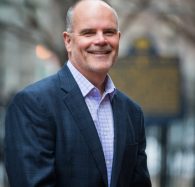Get Involved

 Become a Thought Partner
Become a Thought Partner
Partner with us to produce thought leadership that moves the needle on behavioral healthcare.
 Other options to get involved
Other options to get involved

Thank you!
We received your information and will be in contact soon!
Get Involved

 Grantmaking
Grantmaking
We fund organizations and projects which disrupt our current behavioral health space and create impact at the individual, organizational, and societal levels.
 Participatory Funds
Participatory Funds
Our participatory funds alter traditional grantmaking by shifting power
to impacted communities to direct resources and make funding decisions.
 Special Grant Programs
Special Grant Programs
We build public and private partnerships to administer grant dollars toward targeted programs.
 Program Related Investments
Program Related Investments
We provide funds at below-market interest rates that can be particularly useful to start, grow, or sustain a program, or when results cannot be achieved with grant dollars alone.
Get Involved

 Tia Burroughs Clayton, MSS
Tia Burroughs Clayton, MSS
Learning and Community Impact Consultant
Add some text here
 Alyson Ferguson, MPH
Alyson Ferguson, MPH
Chief Operating Officer
Contact Alyson about grantmaking, program related investments, and the paper series.
 Samantha Matlin, PhD
Samantha Matlin, PhD
Senior Learning & Community Impact Consultant
Contact Samantha about program planning and evaluation consulting services.
 Caitlin O'Brien, MPH
Caitlin O'Brien, MPH
Director of Learning & Community Impact
Contact Caitlin about the Community Fund for Immigrant Wellness, the Annual Innovation Award, and trauma-informed programming.
 Joe Pyle, MA
Joe Pyle, MA
President
Contact Joe about partnership opportunities, thought leadership, and the Foundation’s property.
 Bridget Talone, MFA
Bridget Talone, MFA
Grants Manager for Learning and Community Impact
Add some text here
It is with deep sadness that the Scattergood Foundation shares this message. We mourn the lives of George Floyd, Breonna Taylor, Ahmaud Arbery, and countless others who lost their lives to police violence; and to those who continue to face the weaponization of white privilege and white supremacy like in the case of Christian Cooper. We know that “a system cannot fail those it was never meant to protect” (W.E.B. Du Bois), and we are outraged by the structures that stand in the way of justice and that protection.
We are clear in our conviction that Black Lives Matter.
It is not only police violence, but lack of access to quality health care, inequitable school funding, unsafe housing, economic inequality, and many other issues that cause significant harm to Black communities. As a behavioral health foundation, we acknowledge not only the physical toll, but the mental and emotional anguish caused by structural racism. In the movement for social justice, it is critical that we recognize how such oppression triggers anxiety, depression, post-traumatic stress disorder, substance use disorders, and other behavioral health conditions.
Core to our mission is improving wellbeing and quality of life; to recognize the unique spark and basic dignity in every human. Changing the conditions that were built by a culture of white supremacy requires bold and intentional action. Though we know that Philadelphia bursts with social, cultural, and yes – financial – riches, it remains the most impoverished large city in the country. It does not have to be this way. We ask ourselves and our Philanthropic peers to dedicate significant monetary resources and use our power toward advocating for the policy and systems changes our city and society desperately need.
We commit ourselves to recognizing and challenging the historic and systemic inequalities that disadvantage and marginalize individuals, organizations, and communities. While the events of the past week deepen and embolden our commitment, we struggle with the effectiveness of how we’ve historically shown our commitment in our work – internally and externally. Recognizing that we are accountable, we offer the following statements to illustrate our course of actions:
- We will participate in, learn from, and make space for conversations about race that challenge us with discomfort.
- We will be better listeners and more active advocates for justice.
- We will center racial equity in our advocacy for trauma-informed, healing-centered practice.
- We will make grants and Program Related Investments to organizations like the Philadelphia Bail Fund.
- We will build an equitable grant process, well beyond the grant application.
- We will invest time and resources in participatory grantmaking like the Community Fund for Immigrant Wellness.
- We will spend beyond the minimum five percent payout requirement for private foundations to put more resources where they’re needed.
Thomas Scattergood, for whom the Scattergood Foundation is named, carried with him Quaker values, at the heart of which is a belief in Inner Light, and that of God in every person. We bring this value forward and stand in solidarity in the fight for justice and safety for black lives.
We are accountable to you. Please contact Joe Pyle, president, at jpyle@scattergoodfoundation.org or 267-519-5354 if you would like to talk about the above statement.
If you are in need of support, please use the following resources:
For mental health:
- National Suicide Prevention Lifeline (1-800-273-8255)
- Crisis Text Line (Text HOME to 741741)
- NAMI Mental Health Warm-line (267-687-4381)
- For Philadelphians:
- Philly Hope Line (1-833-PHL-HOPE or 1-833-745-4673)
- Community Behavioral Health (1-888-545-2600)
- City of Philadelphia Department of Behavioral Health and Intellectual disAbility Services Crisis Hotline (215-685-6440)
- NET Centers Access Point Opioid Treatment Services (1-844-533-8200; 215-408-4987)
For businesses affected by vandalism: Philadelphia Business Services Hotline (215-683-2100)
This work is as much personal as it is professional. Let’s not just write a statement, let’s be the statement. Please see below for resources to educate yourself about racism and anti-racism.
- Anti-Racism Resources list for white people and parents to deepen your anti-racism work.
- Black Lives Matter Toolkits on healing justice, conflict resolution, and more.
- Campaign Zero has research and actionable solutions we can use to help end police violence.













